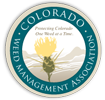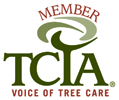
Questions
Do I need my trees sprayed?
Why are my pine needles turning brown?
How do I know my trees are pruned right?
How do winterize my trees?
Why did my recently planted tree die?
Will pesticides hurt bees and other pollinators?
What can I do to protect bees and other pollinators?
Are the chemicals applied to my tree dangerous to my kids and pets?
When is the best time to plant things?
When is the best time and why should I prune my trees?
Do you need a crane to remove my tree?
How will you prune my tree in the backyard?
Do I need my trees sprayed?
The time of year, the tree species infested, and the amount of insect
population all determine whether your tree should be sprayed. Beware of blanket treatments, not all insect issues need
spraying.
Why are my pine needles turning brown?
There are several reasons for browning needles. Natural needle cast occurs in the fall of the year. Conifer needles can be damaged by severe cold temperatures during periods when trees are active. Conifer needles can discolor and cast needles due to salts, needle scales, and plant diseases.
How do I know my trees are pruned right?
Tree care is a fine line between form and function. Too much care is never good for mature plants, over pruning mature trees can lead to decline. Tree defects and potential targets should be considered before pruning. If you can’t justify removing the limb, leave it. If you aren't sure consult with a arborist. Call us before your prune.
How do winterize my trees?
Use tree wrap on small thin bark trees to protect them from winter's damaging sun. Water as often as weather permits, and mulch wherever possible. Stressed and wind exposed conifers may benefit from anti-dessicant sprays.
Why did my recently planted tree die?
Newly planted, young trees require more water than established trees. Trees planted too deep will suffocate, baskets left on root balls can hinder new tree survival. Poor soil conditions if not amended can also result in tree failure.
Will pesticides hurt bees and other pollinators?
Please read this article from the EPA about Pesticide Risks for Bees.
What can I do to protect bees and other pollinators?
Honey bees, wild bees, butterflies, moths, flies, wasps, beetles and other animals pollinate many of the crops that we depend on for food. This report from the Colorado Department of Agriculture describes ways that you can help protect our pollinators.
Are the chemicals applied to my tree dangerous to my kids and pets?
Pesticides should always be respected. The reentry period for most chemical applications is when the applied product is dry. If you are concerned or suspect pesticide sensitivity delay your reentry time. Helpful hints include removing all toys from application area, put up all feeders and water containers, and limit play around application area after application.
When is the best time to plant things?
Spring and fall are the best times to plant, taking advantage of moisture periods.
Winter is also a good time to plant if you can get water to the newly planted
plants. Leave a real legacy and plant a tree.
When is the best time and why should I prune my trees?
Trees benefit our urban landscapes in many ways from shade to carbon cycling. Tree pruning can enhance a plant's life, improve the plant's health, and make the urban environment safe. There are few times when we recommend you should not prune in Colorado. Pruning should coincide with periods when pruning wounds can close as rapidly as possible.
Do you need a crane to remove my tree?
Cranes have revolutionized tree work in the past 10 years. Although making
many hazardous situations more manageable some risk should be acknowledged.
Crane failure can be serous, and only qualified arborist and crane operators should
be considered for hazardous tree removals. Get references and ask questions
before contracting with a company. Not all tree removals require the use of a
crane.
How will you prune my tree in the backyard?
Our tree workers can not only prune your tree but can climb all the way to the top
and prune the tree correctly doing most of the work on the tips where the trees need
it.
| You can live for years next door to a big pine tree, honored to have so venerable a neighbor, even when it sheds needles all over your flowers or wakes you, dropping big cones onto your deck at still of night. |
~Denise Levertov |





